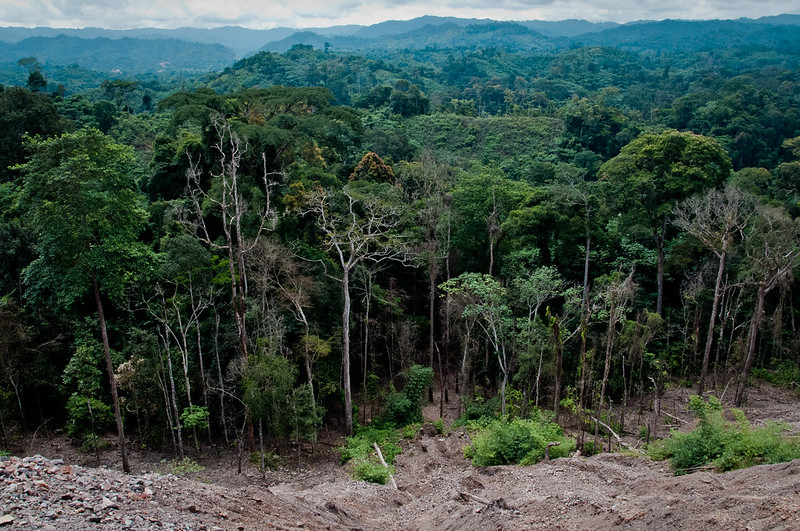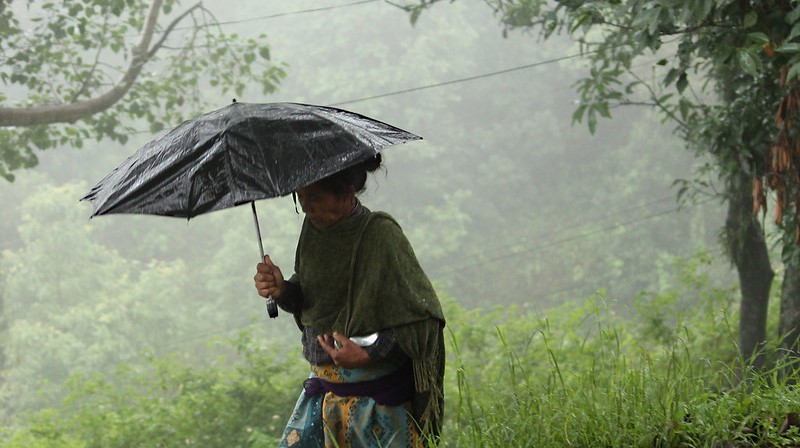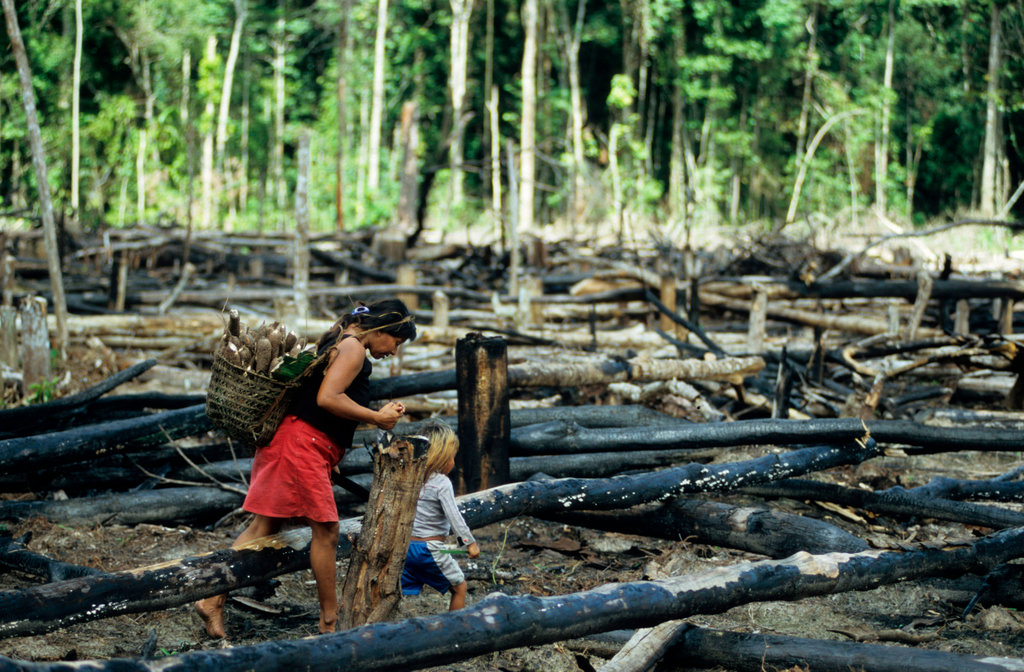Alejandra Padin-Dujon argues that we need concepts like the Global Climate Mitigation Trust in order to finance the up-front costs of renewable energy capital in the Global South.
The Bridgetown Initiative—a package of proposals to reform international finance for climate—was released to great commotion in September 2022. In July, Prime Minister Mia Mottley of Barbados had convened finance experts from policy and academia in the capital (Bridgetown) of her small island state, emerging with three ground-breaking proposals a mere two months ahead of COP27: the world’s biggest and most important annual climate negotiations.
Immediately, Bridgetown became an international talking point. Few, if any, negotiators dared oppose the enormously popular slate of reforms outright. Part of Bridgetown’s appeal was its realism: while “radically” innovative, its mechanisms were situated squarely within mainstream institutions like the International Monetary Fund (IMF).
Since 2022, Mottley’s Initiative has undergone several evolutions, documented through explainers and an addendum in the succeeding months by PM Mottley’s climate envoy Avinash Persaud; and formalised in “Bridgetown 2.0,” released in April 2023. Bridgetown’s refinements have generally added detail. However, one provision from early versions of the Bridgetown Initiative called the Global Climate Mitigation Trust—introduced in Mr Persaud’s writings from 2022—does not exist in Bridgetown 2.0. Nor does it appear in publicly available remarks by Barbados or other developing countries since then.
This quiet deletion was a mistake. Countries in the Global South need some version of the Trust to effect green energy transitions, which require infrastructure upgrades, capacity-building, and large upfront capital investments. This predicament has become increasingly clear in the year since Bridgetown’s inception.
Debut of the Trust and fall from grace
Mr Persaud’s explanation of the Trust is excerpted below.
The Bridgetown solution [to decarbonisation costs in developing countries] is a Climate Mitigation Trust that borrows on the international capital markets with the backing of $500bn of Special Drawing Rights, donor guarantees, or similar… The Trust would invest borrowed funds in projects based on the size and pace of climate change mitigated… These loans would be on the Trust’s balance sheet, not the Government’s.
In essence, the Trust would create a pool of rich countries’ “Special Drawing Rights” or SDRs—IMF tokens redeemable for cash—and use this capital to borrow money on the international market. Then, the Trust would lend this borrowed money to emissions reduction projects in developing countries. This plan is clever on several levels.
First, by using fallow SDRs instead of drawing down national budgets, no developed country would feel the pinch. Second, since the IMF is considered highly reliable for repayment of debts, it could access credit at stunningly low rates on the international market—much lower than those available to developing countries acting on their own. This means that the Trust could also lend at low rates. Finally, by lending to projects instead of governments, no developing country would be saddled with additional sovereign debt.
Nonetheless, by 2023, Bridgetown 2.0 had abandoned the Trust and repackaged green transition into two, more vague, less actionable action items:
- Mobilize more than $1.5 trillion per year of private sector investment in the green transformation.
- Create an international trade system that supports global green and just transformation.
Civil society speculation held that there were concerns the Trust would serve middle-income countries first and foremost, as they have a bigger carbon footprint and therefore a more pressing need to decarbonise. This could leave behind low-income countries, which may not need to lower emissions, but which urgently require “future-proof” green pathways for development. Especially against the backdrop of the World Bank Spring Meetings in April 2023, which sparked controversy due to perceived competition between its climate and anti-poverty agendas, the Trust may have become politically unviable.
Why the Trust is still needed
The controversies notwithstanding, this hypothetical Trust is urgently needed. One of the biggest obstacles to green economic transitions in developing countries is upfront capital costs for renewable energy projects, exacerbated by the high cost of borrowing in the Global South.
Developing countries typically pay much higher interest rates when borrowing due to the risks banks perceive in lending to them. Mr Persaud claims that whereas governments that issue international reserve currencies (i.e., high-powered developed countries) borrow ten-year money at 1-4% per year, developing countries borrow at an average of 14%. In lay terms, that is the difference between minimal interest rates and crippling ones—where the crippling ones go to the countries that are more cash-strapped to begin with.
Dr Charles Sullivan at Imperial College London and Dr Ulrich Volz at the School of Oriental and African Studies add that “for every ten dollars paid in interest by developing countries, an additional dollar will be spent due to climate vulnerability… The magnitude of this burden will at least double over the next decade.” The cost of capital crisis is growing worse.
Shauna Aminath, Minister for the Environment, Climate Change, and Technology in the Maldives, recalled the severity of intertwined cost-of-capital and decarbonization challenges recently in the New York Times:
We have been held back by the exorbitant cost of financing renewable projects. Our large debt and recent political instability, coupled with the hangover from the pandemic, have hurt the Maldives’ credit rating. The loans available to us can therefore carry elevated interest rates. This sky-high cost of capital makes most solar projects non-starters. So we continue to burn diesel fuel.
What Barbados, the Maldives, and any number of developing countries pursuing simultaneous economic development and decarbonisation need, is access to climate finance at concessional rates. So how can the Trust address this need without inadvertently favouring high-emitting developing countries over lower-income ones?
A tentative solution
One solution might be to consider projected emissions in addition to current ones when prioritising decarbonisation projects through a new Global Climate Mitigation Trust. Many Sub-Saharan African countries, for example, are low emitters—yet have rapidly growing populations, high development aspirations, and rampant energy poverty (inadequate access to electricity and power), meaning that energy needs will climb rapidly. Accordingly, projects in these countries—not high-income, nominally developing countries like Saudi Arabia—should be preferred recipients of concessional finance.
This idea is far from a perfect solution, particularly in that projections are difficult to execute accurately or objectively, and we must mitigate both future and current emissions to limit global warming. However, it is a strong contender because it acknowledges the critical connections between development needs and green transitions.
The Trust must also address controversy associated with its host institution: the IMF. The IMF (and its cousin, the World Bank) are notorious for miring recipient countries in debt traps. Recall that the Bridgetown Initiative, while visionary, is not “radical” in that it manoeuvres within such entrenched institutions.
Ultimately, however, joint development-decarbonisation agendas in the Global South require finance at concessional interest rates. The Global Climate Mitigation Trust conceived a way to address this problem. Cutting it from the Bridgetown Initiative package was an error: one that compromises the attractiveness of green economic transitions and fuels the fire of dead-end, fossil fuel-driven “solutions” to energy poverty and development. As Bridgetown and peer efforts evolve, authors should reincorporate or replace the Trust. Vague calls for private sector investment and a better international trade system, simply will not cut it.
The views expressed in this post are those of the author and do not reflect those of the International Development LSE blog or the London School of Economics and Political Science.
Image credit: Master Wen via Unsplash.





